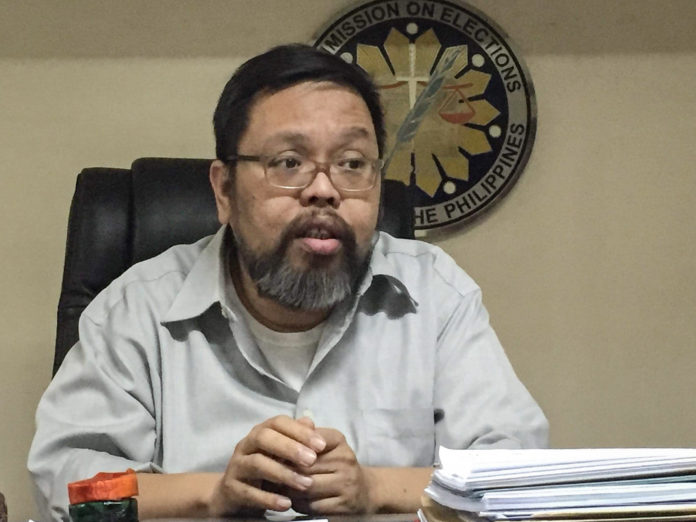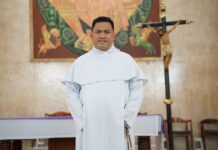YEARS after leading the UST Central Commission on Elections (Comelec), a UST law alumnus finds himself as spokesman of the country’s poll body.
James Jimenez, who obtained his law degree in 2000, has been serving the national Comelec for 17 years. He said the biggest challenge of working for the commission was to stand between different sides of the political fence.
“They tend to present narratives that suit them. And while those narratives are per force based on factual assertions, actual facts, they are not faithful to the actual facts,” he told the Varsitarian.
“They take whatever facts they want, they cherry-pick, and then they interpret it within the inch of its life so that it suits their narrative. That is the source of the challenge for me.”
Jimenez pointed out that having integrity as a Thomasian helped him in his responsi-bilities.
“You have to illuminate, meaning you have to direct that light outwards in an active way. And ‘yon ang pinaka-vision ko for this work, that’s why when I came to this job I started pushing it in social media, I started our visibility on TV,” he said.
To illuminate, he said, means to communicate and educate people. Social media, he said, should be used as a platform for voter education.
“You should have a deeper understanding and appreciation on social media to under-stand that, yes, it can be used for wrong purposes, but that doesn’t mean it can’t be used for good,” he said.
Back in college, he was the chairman of the Central Comelec for one year before run-ning for office as president of the Faculty of Civil of Law Student Council in 1998. He was also the editor in chief of the UST Law Review.
The UST alumnus also led the national Comelec’s education and information depart-ment, working to strengthen the commission’s presence on social media.
Aside from being UST Comelec chief, he was a debater who received several awards from the University such as the Benavides Outstanding Achievement, the Quezon Leadership and the Pope Leo XIII Communitarian awards.
Later on, he became executive assistant to the Supreme Court administrator in 1999. He then served under the solicitor general for four years.
Jimenez said the advantage of social media is its accessibility that cannot be found in other platforms.
“Voter vigilance” is one of the advocacies of his office, which he said was a bigger duty than just keeping an eye on the ballot.
“Good communication is your good foundation. And ‘yong voter education is the appli-cation of that principle,” Jimenez said.
“We’re expanding the meaning of voter education to include not just knowing how to vote but knowing how to decide who to vote for,” he added.
Jimenez first joined the Comelec as consultant. He resigned a year after, but came back as a director in 2004. He was appointed spokesman in 2006. Vivienne Audrey P. Angeles and C.V. Gamoso














